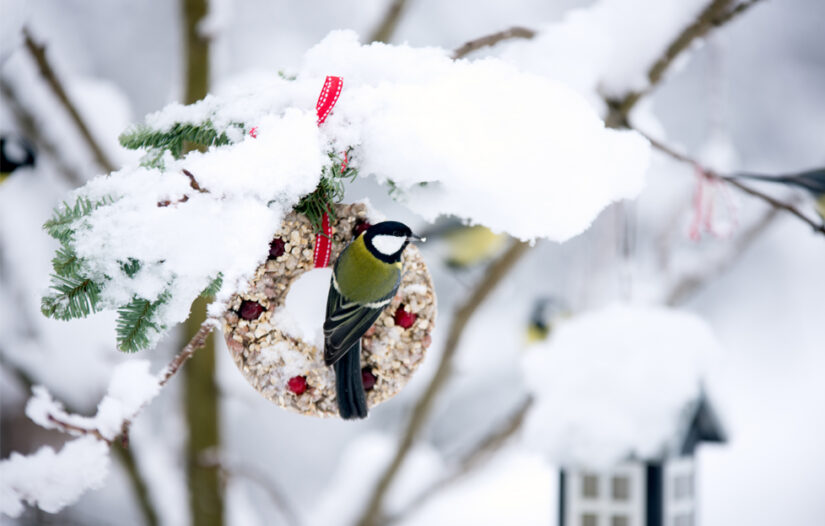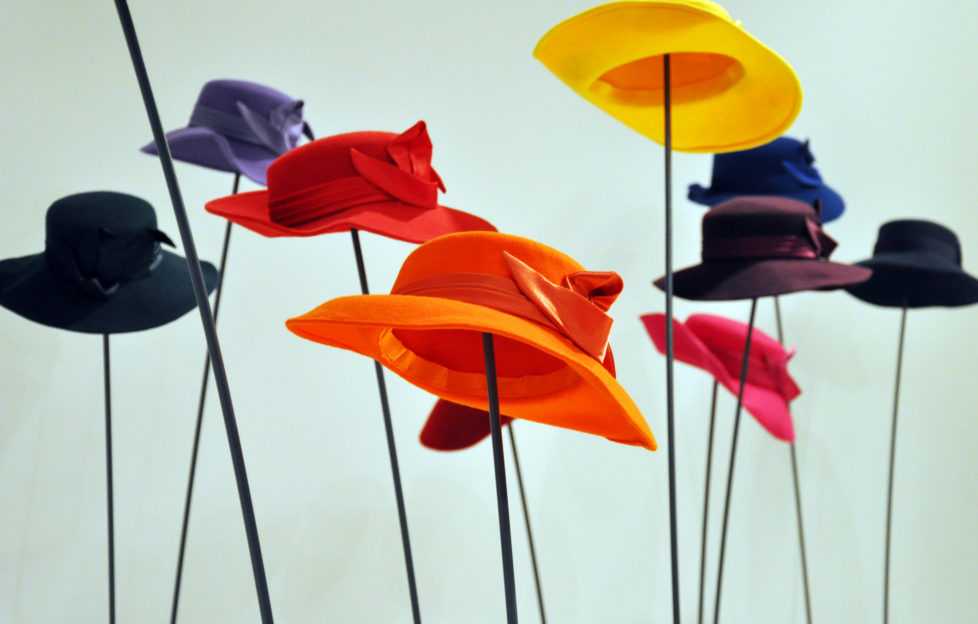
There was a time when no well-dressed lady would be seen without her hat.
And as dresses became simpler in the years leading up to WWI, styles in hats were becoming ever more elaborate. How to choose the most becoming hat was a pressing question.
The “Friend” fashion editor of the time made sure that her readers had plenty of inspiration.
Some of the creations are lovely. In summer, these elegant styles for young ladies would have been the height of chic.
For Summer Sun
This summer bonnet might could have appealed to those who aspired to the milkmaid look.
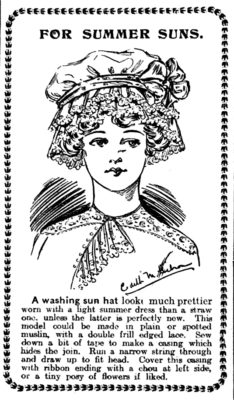
“A washing sun hat looks much prettier worn with a light summer dress than a straw one, unless the latter is perfectly new. This model could be made in plain or spotted muslin, with a double frill edged lace. Sew down a bit of tape to make a casing which hides the join. Run a narrow string through and draw up to fit head. Cover this casing with ribbon ending with a chou at left side, or a tiny posy of flowers if liked.”
For Autumn Days
More mature readers might have favoured this autumn style.
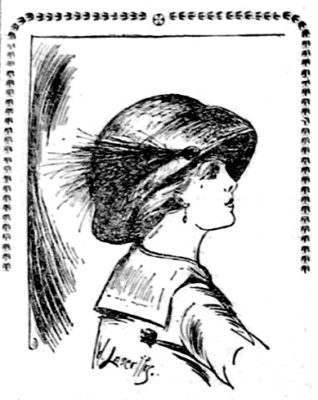
A smart and effective hat in grey squirrel, finished with a brilliant osprey and button at the side. This chapeau could also be very cheaply made up in straw with pale yellow osprey finished with button of twisted straw.
(No wonder the poor osprey became endangered! It’s interesting to see that, despite the founding of the Royal Society For The Protection Of Birds in 1889, the trade in rare bird feathers for hat trimmings was still much in evidence.)
The “Bride” Hat
We’re not so sure about this “Bride Hat” from 1913, either.
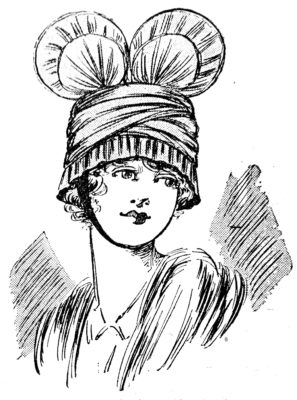
“This is quite the latest idea in chapeaux, and soon every smart woman will be wearing the “Bride” hat, so called because of the chin strap which, in this case is fashioned of black velvet, though sometimes it is of net lace ribbon and fur. The hat itself is of a soft brown Dunetine velvet swathed dead gold linen, which forms the upstart ears at the back.”
And will you just look at those “upstart ears”! ‘Twas a brave lass who would venture out attired thus, we think.
However, this striking design possibly had far-reaching effects.
Seen here in 1913, some 15 years later, on the other side of the Atlantic, a similar silhouette was spotted on the silver screen.




